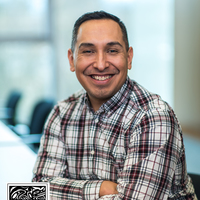
Emma Elliott
Dr. Elliott-Groves is an assistant professor in the Department of Learning Sciences and Human Development in the College of Education at the University of Washington. She holds both a Ph.D. in Educational Psychology and a Master of Social Work in Children, Youth, and Families. Much of her research centers on understanding the meanings and explanations of suicidal behavior from the perspective of Indigenous peoples. Her work grows from ethical frameworks generated by Indigenous and place-based knowledges and practices to create process-centered approaches that illuminate Indigenous pathways toward collective livelihood. By employing a strengths-based approach to recovery, Dr. Elliott-Groves rigorously engages youth, families, and communities in the development of integrated behavioral health interventions to address complex social issues. As an enrolled member of the Cowichan Tribes who was born and raised in the community, Dr. Elliott-Groves is currently partnering with her home community to design programming to strengthen its physical, mental, intellectual, and cultural health. The interdisciplinary intersections of her research include contemporary Indigenous issues; culture, learning, and human development; and trauma, prevention, and recovery.
Phone: 206.221.5125
Address: Emma Elliott-Groves, PhD, MSW | University of Washington
Cowichan Tribes
Assistant Professor
College of Education
322 G Miller Hall, Box 353600
Seattle, WA 98195
emmae@uw.edu
Phone: 206.221.5125
Address: Emma Elliott-Groves, PhD, MSW | University of Washington
Cowichan Tribes
Assistant Professor
College of Education
322 G Miller Hall, Box 353600
Seattle, WA 98195
emmae@uw.edu
less
Related Authors
Shannon Toll
University of Dayton
Laurence J Kirmayer
McGill University
Bonnie M Duran
University of Washington
Vanessa Hiratsuka
University of Alaska Anchorage
Mustahid M Husain
University of Toronto
Rocky James
University of British Columbia
InterestsView All (10)









Uploads
Papers by Emma Elliott
colonialism and the implications of the establishment of settler permanency for Indigenous futurity. Broadly, this dissertation contests individualistic models of suicide and presents the specific need to theorize Indigenous suicidal behavior from a collective orientation.
Keywords: Indigenous suicide, settler permanency, settler colonialism, collective, Indigenous futures